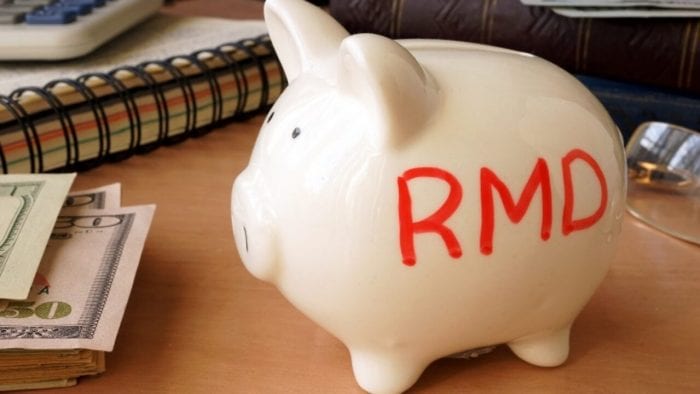By Leah Chiappino
One of the most trying aspects of COVID-19 is the financial turmoil it has brought on both national and local business sectors. Financial adviser Michael Christodoulou of Edward Jones Investments in Stony Brook answered some commonly asked questions about how to secure investments and resources for small businesses, and the types of financial assistance offered through the recent stimulus package.
Q: What is your advice for people, especially those that are retired or nearing retirement, regarding their stocks and 401(k) plans?
A: For one thing, ask yourself this: When do you really need the money from your investment accounts, such as your IRA and your 401(k) or similar employer-sponsored plan? These are retirement accounts, so, depending on your age, you may not need to tap into them for 20, 30 or even 40 years. If so, your losses may be “paper” ones only for now and aren’t subjecting you to imminent financial jeopardy. This isn’t to minimize the effect this downturn will have on you, of course — it always takes time to recover lost ground, and there are no guarantees with investing. However, although past performance does not guarantee future results, it is useful to note that, over its long history, the U.S. stock market has typically trended in one direction — up — despite serious and sometimes lengthy declines such as we saw in the Great Depression and, to a lesser extent, the bursting of the dot.com bubble of the early 2000s and the financial crisis of 2008-09.
Nonetheless, you may have shorter-term goals — a wedding, down payment on a home, overseas trip, etc. — for which you need to save. For these goals, though, you wouldn’t want to touch your IRA or 401(k), anyway, as you’d likely face taxes and penalties. Instead, you’ll want your money invested in liquid, low-risk accounts that will be minimally affected, if at all, by declines in the financial markets. These vehicles might include Certificates of Deposit (CDs), money market accounts and even good old-fashioned U.S. savings bonds, all of which offer the protection of principal and can pay higher rates than traditional bank savings accounts.
Q: Should people stop contributing to retirement during this time?
A: Every investor has a different time horizon and risk tolerance. Depending on their time horizon and risk tolerance there may be a number of different recommendations.
For example, if a client has a longer-time horizon until retirement it may make sense to continue investing periodically in their retirement plan. But for someone who is looking to retire relatively soon, they might want to stop contributions or start saving those assets in low-risk accounts.
I highly recommend they work with their financial adviser in order to have a personalized strategy designed based on their goals for retirement.
Q: How would you advise small businesses go about applying for governmental assistance, especially through the federal stimulus bill?
A: Small businesses should work with their tax professionals/CPA and financial adviser in order to review their individual situation. I recommend they start by logging onto www.sba.gov/disaster. During this time, they should also be very cautious about scams.
Q: The economic effects of this virus are already enormous, and will get exponentially worse. How do you think people can financially cope if this crisis continues?
The Coronavirus Aid, Relief, and Economic Security Act (CARES Act) offers help for investors and small businesses. As we go through the coronavirus crisis, we are all, first and foremost, concerned about the health of our loved ones and communities. But the economic implications of the virus have also weighed heavily on our minds. However, if you’re an investor or a business owner, you just got some help from Washington, and it could make a big difference, at least in the short term, for your financial future. Specifically, the passage of the $2 trillion CARES Act offers, among other provisions, the following:
- Expanded unemployment benefits: The CARES Act provides $250 billion for extended unemployment insurance, expands eligibility and provides workers with an additional $600 per week for four months, in addition to what state programs pay. The package will also cover the self-employed, independent contractors and “gig economy” workers. Obviously, if your employment has been affected, these benefits can be a lifeline. Furthermore, the benefits could help you avoid liquidating some long-term investments you’ve earmarked for retirement just to meet your daily cash flow needs.
- Direct payments: Individuals will receive a one-time payment of up to $1,200, although this amount is reduced for incomes over $75,000 and eliminated altogether at $99,000. Joint filers will receive up to $2,400, which will be reduced for incomes over $150,000 and eliminated at $198,000 for joint filers with no children. Plus, taxpayers with children will receive an extra $500 for each dependent child under the age of 17. If you don’t need this money for an immediate need, you might consider putting it into a low-risk, liquid account as part of an emergency fund.
- No penalty on early withdrawals: Typically, you’d have to pay a 10 percent penalty on early withdrawals from IRAs, 401(k)s and similar retirement accounts. Under the CARES Act, this penalty will be waived for individuals who qualify for COVID-19 relief and/or in plans that allow COVID-19 distributions. Withdrawals will still be taxable, but the taxes can be spread out over three years. Still, you might want to avoid taking early withdrawals, as you’ll want to keep your retirement accounts intact as long as possible.
- Suspension of required withdrawals: Once you turn 72, you’ll be required to take withdrawals from your traditional IRA and 401(k). The CARES Act waives these required minimum distributions for 2020. If you’re in this age group, but you don’t need the money, you can let your retirement accounts continue growing on a tax-deferred basis.
- Increase of retirement plan loan limit: Retirement plan investors who qualify for COVID-19 relief can now borrow up to $100,000 from their accounts, up from $50,000, provided their plan allows loans. We recommend that you explore other options, such as the direct payments, to bridge the gap on current expenses and if you choose to take a plan loan work with your financial adviser to develop strategies to pay back these funds over time to reduce any long-term impact to your retirement goals.
- Small business loans: The CARES Act provides $349 billion to help small businesses — those with fewer than 500 employees — retain workers and avoid closing up shop. A significant part of this small business relief is the Paycheck Protection Program. This initiative provides federally guaranteed loans to small businesses who maintain payroll during this emergency. Significantly, these loans may be forgiven if borrowers use the loans for payroll and other essential business expenses, such as mortgage interest, rent and utilities, and maintain their payroll during the crisis. Please visit sba.gov/disaster for more information.
We’ll be in a challenging economic environment for some time, but the CARES Act should give us a positive jolt — and brighten our outlook.
Q: Do you have any information on how residents will know the exact number on their stimulus check for those above the $75,000 income threshold?
A: I would advise individuals to contact their tax professional/CPA. They will be able to give more accurate guidance based on their clients’ taxable situation and possible qualifications for the CARES Act direct payment program.
Q: What is your advice for those that have recently lost jobs and need to prioritize their loans? How can people cut back, and are there any specific loans that should be paid over others?
A: In the unfortunate event that you or a family member loses your job there are some easy steps to follow to help you better prepare yourself for this event. The federal government has taken a big step in protecting renters by issuing a 120-day moratorium on evictions from federally subsidized housing and property with federally backed mortgage loans. Some states have barred evictions for a few weeks. Please check with your landlord and or mortgage company.
Q: With stocks dipping, is now a good time to buy?
A: Before investing we recommend that investors understand their time horizon with the asset they are thinking about investing. What will that money be used for in the future? At what point in the future will you need the money?
For investors with a long-term outlook and time horizon, we remain confident that a rebound will take shape. It may take a while longer to materialize, but we think it will be robust and fueled by a return of confidence in the post-virus outlook. Long-term investors don’t need to capitalize on the pullback all at once but should consider opportunities to benefit from this decline. Consider:
- Rebalancing: Trimming overweight allocations and filling gaps in underrepresented asset classes and sectors.
- Systematic investing: Taking advantage of the ongoing volatility by systematically investing at regular intervals, reducing the “timing” aspect as the selloff plays out.
- Look for good buying opportunities, because they are certainly out there. A well-managed company with a solid business plan that produces quality products and services is going to be that same company after the coronavirus and oil price panics subside and, right now, that company’s stock shares may literally be “on sale.”
We recommend you consult with a financial adviser in order to make sure you completely understand your level of risk and time horizon.
Q: Do you have any recommendations for a set amount people should have in savings in case of an emergency? What is the best way to do so?
A: I believe everyone should have an emergency fund. Unfortunately, there isn’t a universal dollar amount that applies for everyone.
If you don’t already have an emergency fund, take these first steps to prepare:
- Detail your current financial situation including your income, expenses, assets and debts and any money previously set aside for unexpected expenses.
- Create a detailed budget in order to figure out what your monthly and annual living expenses add up to.
- Consider saving between three and six months of living expenses if you are still working; 12 months or more if you are retired.
This is just a starting point. Depending on your age, your list may look considerably different. Your financial adviser can help you put together your cash flow analysis related to your financial goals and help you calculate how much cash you may need for your next unexpected event.
Q: How do you think people should go about negotiating with credit card companies and banks if they need relief?
A: If someone is facing some financial hardship, they should contact their credit card company or bank directly. In most cases these companies can provide guidance and options so the individual understands their options and can make a decision based on all the information provided to them.








